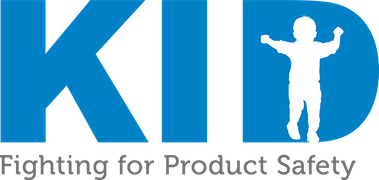Lawmakers Prioritize Consumer Safety and Introduce CAP Act
Consumer groups support legislation from Senator Peter Welch and Representative Jan Schakowsky to increase Consumer Product Safety Commission civil penalties.
January 25, 2024
Contact:
Nancy Cowles, KID; nancy@kidsindanger.org; (312) 218-5593
Courtney Griffin, CFA; cgriffin@consumerfed.org; (202) 567-7240
WASHINGTON, DC – On January 25, Senators Peter Welch (D-Vt.) Richard Blumenthal (D-Conn.), Edward Markey (D-Mass.), Brian Schatz (D-Hawaii), and Ben Ray Luján (D-N.M.), as well as Representatives Jan Schakowsky (D-Ill.) and Bonnie Watson Coleman (D-N.J.) introduced the Consumer Advocacy and Protection (CAP) Act. The Consumer Product Safety Commission (CPSC) uses a variety of tools to protect consumers from unsafe products, including civil penalties for violative companies. Currently, the statutory caps on CPSC civil penalties – $100,000 per violation and $15,000,000 for multiple violations – are too low to reflect the gravity of violations or deter future bad behavior, especially for large corporations. The amounts were adjusted for inflation in 2021, reaching $120,000 per violation and $17,150,000 for a series of related violations. The CAP Act will strike the maximum civil penalty statutory cap on multiple violations, as well as increase the individual violation cap to $250,000.
“Consumers deserve safe products,” said Courtney Griffin, Director of Consumer Product Safety at Consumer Federation of America. “Civil penalties are an important tool to discourage manufacturers from taking risks that hurt or kill consumers. We applaud Senator Welch and Congresswoman Schakowsky for introducing this legislation, which will protect consumers and ensure the Consumer Product Safety Commission can hold companies accountable.”
“One of the CPSC’s more important roles is keeping children safe from dangerous products,” stated Nancy Cowles, Executive Director of Kids In Danger (KID). “Removing the artificial cap on multiple violations will allow CPSC to structure penalties that deter future violations and sends a strong message that children’s safety should be a top concern of all manufacturers.”
Just this year, CPSC demonstrated the importance of civil penalties. Generac Power Systems, Inc. agreed to pay $15,800,000 after failing to promptly report a defect in its portable generators that resulted in the amputation and disfigurement of users’ fingers. Further, Peloton agree to pay $19,065,000 for failing to report defects in a treadmill that lead to a child’s death. The CAP Act will allow the CPSC latitude when it considers factors related to civil penalty assessments and ensure that civil penalty amounts reflect the severity of violations and deters future violations.
